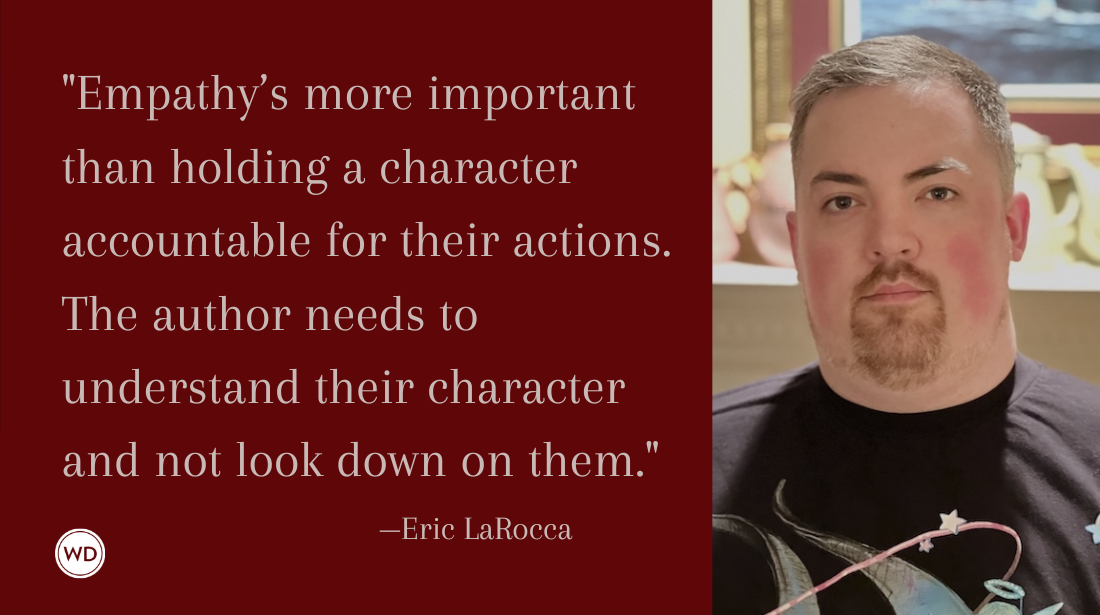Dr. Bradley Onishi: On Vulnerability in Writing Nonfiction
Dr. Bradley Onishi discusses the need to be vulnerable when writing his new work of religious and political nonfiction, Preparing for War.
Dr. Bradley Onishi is a scholar of religion and cohost of the Straight White American Jesus podcast, which has more than 45K streams per month. His writing has been published in the New York Times, LA Review of Books, and Religion & Politics, among other outlets. A TEDx speaker and the author, editor, or translator of four previous books, Onishi teaches at the University of San Francisco and lives in the Bay Area with his wife and daughter. Find him on Twitter, Facebook, and Instagram.
In this post, Bradley discusses the need to be vulnerable when writing his new work of religious and political nonfiction, Preparing for War, his advice for writers, and more!
Name: Bradley Onishi
Literary agent: David Morris
Book title: Preparing for War: The Extremist History of White Christian Nationalism -And What Comes Next
Publisher: Broadleaf
Release date: January 3, 2023
Genre/category: Religion and Politics
Previous titles: The Sacrality of the Secular: Postmodern Philosophy of Religion (Columbia University Press, 2018)
Elevator pitch for the book: An in-depth historical examination of the rise of White Christian nationalism from a former White Christian nationalist insider. Mixing memoir and history, this book shows the long road to the January 6th insurrection through the religious communities at its center.
IndieBound | Bookshop | Amazon
[WD uses affiliate links.]
What prompted you to write this book?
Watching the January 6th insurrection, I couldn’t escape a haunting question: Would I have been there? As a former evangelical minister who is now a scholar of religion, I realized that my perspective could help readers understand the long historical march toward J6 from the viewpoint of someone trained in the religious movement that helped foment it.
How long did it take to go from idea to publication? And did the idea change during the process?
My research on the topic started in 2019, so when I began writing in Jan 2021 the words came quickly. I drew on a lifetime of memories, experiences, and stories from youth groups, summer camps, and ministry, and mapped them on the historical events that have shaped the rise of White Christian nationalism.
Were there any surprises or learning moments in the publishing process for this title?
One of the biggest surprises was how important it seemed to be vulnerable in telling my story. I had to own my past as a White Christian nationalist in order to convey to readers the emotions, thought processes, and communal dimensions that drive this movement.
It was at times harrowing to go back to this storehouse of memories and put them on the page. But I became convinced over time that without this intense personal dynamic something would have been missing from the book.
What do you hope readers will get out of your book?
There are so many books that provide a journalistic account of Christian nationalist communities. There are, on the other hand, memoirs that give insider accounts of living in these movements. I wanted to give a bifocal lens to the history of White Christian nationalism by tracing the history of the movement through my involvement in it. It required creativity and design, but I think it sets the work apart from others in the genre.
If you could share one piece of advice with other writers, what would it be?
Write from what burns inside of you. That is what will sustain you through the arduous process of crafting a book from start to finish. It’s one thing to write what you know or care about. It’s another thing to write what burns you up.
Robert Lee Brewer is Senior Editor of Writer's Digest, which includes managing the content on WritersDigest.com and programming virtual conferences. He's the author of 40 Plot Twist Prompts for Writers: Writing Ideas for Bending Stories in New Directions, The Complete Guide of Poetic Forms: 100+ Poetic Form Definitions and Examples for Poets, Poem-a-Day: 365 Poetry Writing Prompts for a Year of Poeming, and more. Also, he's the editor of Writer's Market, Poet's Market, and Guide to Literary Agents. Follow him on Twitter @robertleebrewer.








